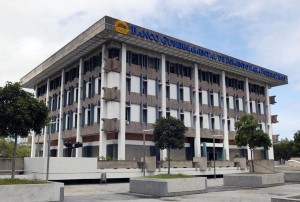Report: GDB knows bondholders IDs, but withholds info


The contract indicates that all the data BondCom gathers belongs to the GDB, which holds the right to use it and provide it to third parties. (Credit: © Mauricio Pascual)
The Government Development Bank has contracted New York-based Bondholder Communications Group, LLC to develop a communications database of information regarding bonds issued by the government and their value, a report by the Center for Investigative Journalism released Wednesday confirmed.
The research by reporters Joel Cintrón-Arbasetti and Carla Minet, of the CPI (as the Center is known by its initials in Spanish), revealed that the GDB signed a contract with the stateside firm known as BondCom in June, for up to $100,000.
The database is to contain information about bonds issued by the GDB, the Puerto Rico Electric Power Authority and other public agencies.
So far, BondCom has made strides in gathering the information required, the GDB told the nonprofit journalism research group.
BondCom has identified several bondholders of the debt held by the GDB, the Puerto Rico Sales Tax Financing Corp. (known as COFINA), and PREPA, GDB President Melba Acosta told the CPI.
“The GDB is currently analyzing the amount of information that can be made public, based on the existence of confidentiality agreements made by BondCom and other sub-contracted entities with the company, and that the rights of third parties cannot by affected,” she told the CPI via the agency’s press office.
The contract indicates that all the data BondCom gathers belongs to the GDB, which holds the right to use it and provide it to third parties.
“BondCom should manage the data in such a way to ensure that the information does not go public, that the data is treated in a complete, confidential manner and that it can only reveal the data exclusively to the GDB,” as stated in the agreement.
BondCom gained popularity in the world of technology and finances in 2012, when it used 100 iPads as an internal and confidential communication tool given to the bondholders of Greek debt.
During the transaction, BondCom installed an application in the machines and distributed them among the bondholders who held leadership roles in the re-negotiation of the Greek debt and who were scattered across Europe, the CPI noted.
As part of BondCom’s mediation technology, a substantial reduction of the debt was achieved, Robert C. Apfel, founder and president of BondCom told the CPI.
The company calls itself “the world leader in assisting bond issuers, their lawyers, and work group in dealing through the initiatives of bondholders successfully.”
It has been involved in different debt processes around the world and offers services to private companies in Latin America, in the banking, health services, power, mass media areas, among others. Aside from being a communication link between investors and creditors, BondCom offers stockbroker services and serves as an intermediary in the purchasing of companies, as indicated on its Internet page.
“Puerto Rico is not a country, it’s a territory. In terms of the services [for which we were hired,] the circumstances of each entity are different. Most of the time we are hired to identify the bondholders, which is typical,” said Apftel, explaining how BondCom’s services to Puerto Rico will differ from those offered to other countries.
“Up until now we have probably obtained a lot of information about a lot of the bonds, and some information about the other bonds. But that info is one or two months old, and has to be refreshed probably,” he said. “The broad composition of investors of families versus companies shouldn’t have important changes in its composition or categories.”
Along the way, Apfel said the research has found that individual investors hold more than half of Puerto Rico’s $73 billion debt, and called them “heroes.”
“The majority of the investors in Puerto Rico are not rich, not institutional, not millionaires. They are families that live in the U.S, and its territories,” he said.
“The miracle of Puerto Rico is the enormous quantity of people that have invested and are Puerto Ricans. These hedge funds are temporary reservoirs of money. Puerto Rico bonds are very unique, unique in the world and in the U.S. The number of Greek people that invested in the bonds of Greece was very small,” he said.
The executive ventured in his opinion of future scenarios.
“If there is a bankruptcy law, the small investors will have a great control over the outcome. I say open the table to the people. Hedge funds have no right to take control,” he said.
“This situation provides an opportunity for Puerto Rico to turn to its small investors, who are not experts, don’t want to get rich, just want to have a retirement, the real, not the fake, not the temporary,” Apfel added.
With regards to making investor information public, Apfel said “Imagine that you have a neighbor that invested 200,000 to send his son to college. Why should his name be on a list?”
So far, the GDB and La Fortaleza have upheld a policy to protect the identity of the investment firms that have purchased Puerto Rico’s debt.










